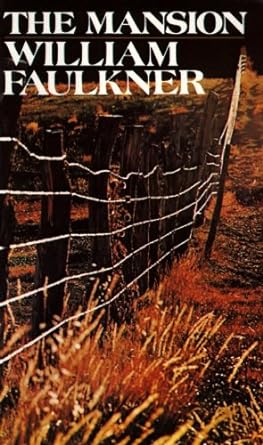


Books in series

The Hamlet
1940

The Town
1957

The Mansion
1887

The Mansion
1900
Authors

William Cuthbert Faulkner was a Nobel Prize-winning American novelist and short story writer. One of the most influential writers of the twentieth century, his reputation is based mostly on his novels, novellas, and short stories. He was also a published poet and an occasional screenwriter. The majority of his works are set in his native state of Mississippi. Though his work was published as early as 1919, and largely during the 1920s and 1930s, Faulkner was relatively unknown until receiving the 1949 Nobel Prize in Literature, "for his powerful and artistically unique contribution to the modern American novel." Faulkner has often been cited as one of the most important writers in the history of American literature. Faulkner was influenced by European modernism, and employed stream of consciousness in several of his novels.

Henry Van Dyke (1852-1933) was an American Presbyterian clergyman, educator, and author. He graduated from Princeton in 1873, and from Princeton Theological Seminary in 1874. He was pastor of the Brick Presbyterian Church, New York City (1883-99), professor of English literature at Princeton (1899-1923), and U.S. minister to the Netherlands (1913-16). Among his popular inspirational writings is the Christmas story The Other Wise Man (1896). As President Wilson's ambassador to the Netherlands from 1913, Van Dyke was a first-hand witness to the outbreak of World War I and its progress, and was a key player in the President's diplomatic efforts to keep the U.S. out of the conflict. Not to be confused with his father, Henry J. Van Dyke (1822-1891). For more information, please see http://www.answers.com/topic/van-dyke...